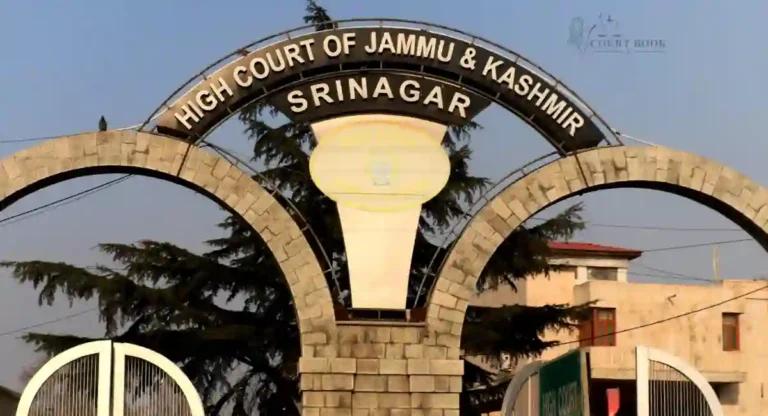The High Court of Jammu & Kashmir and Ladakh has firmly reiterated that civil courts must base their findings strictly on evidence, not on conjecture or assumption. Justice Rahul Bharti, while ruling on a second appeal in the case Mohammad Tufail vs Muzaffar Hussain, criticized both the trial and appellate courts for failing to follow fundamental rules of evidence and procedure.
“Finding of fact is something which is not to be conjectured by civil court or for that matter civil 1st appellate court,” the High Court observed.
The case arose from a civil suit filed by four brothers from Rajouri district, who sought a permanent injunction against seven defendants, alleging interference with their possession of certain land. Their entire claim was based on oral statements, without submitting any documentary proof.
The defendants denied the plaintiffs’ claim of possession and asserted that they themselves had long been in possession of the land. The trial court framed issues, but both parties failed to support their cases with proper evidence. Neither side produced official records nor summoned any government witnesses. Moreover, both parties avoided examining themselves in court, instead bringing only two non-official witnesses each.
Despite the lack of substantial evidence, the trial court ruled in favour of the plaintiffs, restraining the defendants from interfering with the land. Dissatisfied, the defendants appealed. The appellate court reversed the trial court’s judgment and dismissed the plaintiffs’ suit, citing a lack of possession and interference.
“The plaintiffs did not examine themselves as their own witnesses... Likewise, the defendants also did not examine themselves...” the High Court noted, pointing to serious procedural flaws.
The plaintiffs then moved the High Court in second appeal. Justice Bharti delivered a strong rebuke of how both lower courts handled the matter.
“The trial court as well as the civil 1st appellate court acted as if sitting as panchayats and disposing of the matters at their respective ends as per their respective discretion,” the judge remarked.
He emphasized that such handling of a civil suit is against the established legal process, which must follow the Code of Civil Procedure and the Indian Evidence Act. Both the trial court and the appellate court were faulted for delivering conflicting decisions without any solid evidentiary basis.
Read Also:- J&K High Court Confirms Detention of Man Accused of Bovine Slaughter Amid Communal Tension
The High Court found the conduct of both courts to be legally flawed and procedurally incorrect. As a result, the High Court allowed the second appeal and set aside both previous judgments.
“This is antithesis to the law of adjudication of a civil suit,” Justice Bharti added.
The matter has now been sent back to the Munsiff Court (Additional Special Mobile Magistrate), Thannamandi, to be heard afresh, starting from the stage of framing issues.
Case Title: Mohammad Tufail Vs Muzaffar Hussain














